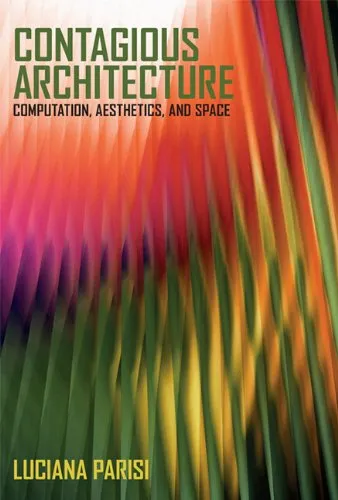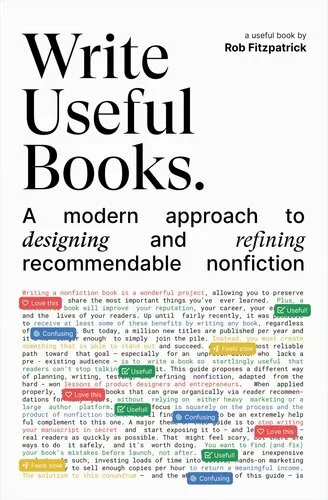Contagious Architecture: Computation, Aesthetics, and Space
4.0
Reviews from our users

You Can Ask your questions from this book's AI after Login
Each download or ask from book AI costs 2 points. To earn more free points, please visit the Points Guide Page and complete some valuable actions.کتاب های مرتبط:
Welcome to an exploration of the intersections between computation, aesthetics, and spatial dynamics as presented in the transformative book, Contagious Architecture: Computation, Aesthetics, and Space by Luciana Parisi.
Detailed Summary of the Book
In Contagious Architecture, Luciana Parisi delves into the intricate relationship between computation and aesthetics, offering a deep analysis of how these elements redefine architectural space. The book dissects the evolution of computational processes and how they shape the aesthetics of architecture in a way that influences not just the visual outcome, but fundamentally the conceptualization of space itself.
Parisi embarks on an intellectual journey to illustrate how algorithms exceed mere functionality to become agents of aesthetic change. Her work eschews traditional architectural narratives, instead framing computation as a dynamic material process capable of generating unpredictable forms. She explores the nuances of algorithmic processes, spatial complexities, and the emergent behaviors of computational systems, positioning them as active participants in the artistic creation of architectural structures.
This book extends the conversation beyond the conventional parameters, inviting readers to consider computational architecture as an evolving form of digital thought. Parisi challenges the boundaries of control and determinism in architectural design, proposing a model where architectural aesthetics are seen as a contingent and emergent property of computation.
Key Takeaways
- The book redefines computation as an aesthetic and architectural tool, rather than merely a technical one.
- Parisi argues for appreciating algorithms as active agents that introduce novelty and unpredictability in architectural design.
- There is an emphasis on how computational processes influence the conceptualization and realization of spatial structures, proposing a shift from deterministic to emergent properties.
- The insights invite further contemplation on the implications of algorithms as drivers of creative practices in architecture.
Famous Quotes from the Book
"Computation is not a mere resource for architectural design, but a generator of unpredictable architectural outcomes."
"The aesthetics of computation reveal a space where control is obsolete, and emergence takes precedence."
"By acknowledging algorithms as aesthetic agents, we open the door to an architecture that is perpetually evolving."
Why This Book Matters
Luciana Parisi's Contagious Architecture holds a significant place in contemporary architectural and computational discourse. By challenging the perception of computation through the lens of aesthetics and space, it pushes the boundaries of traditional architecture and design thought. This book matters because it offers a fresh perspective on how digital processes are reshaping the cultural and intellectual frameworks of architecture. It strengthens the dialogue regarding the potential of computation as a key player in art and architecture, urging readers and practitioners alike to embrace the intrinsic creative possibilities present within algorithms.
Furthermore, Parisi's work enriches the broader field of digital aesthetics, suggesting new pathways for interdisciplinary research and innovation. As a thought leader in this area, her contributions prompt a rethinking of the critical role that emergent technology plays in shaping not only visual outputs but also the underlying philosophy of space-making.
Free Direct Download
You Can Download this book after Login
Accessing books through legal platforms and public libraries not only supports the rights of authors and publishers but also contributes to the sustainability of reading culture. Before downloading, please take a moment to consider these options.
Find this book on other platforms:
WorldCat helps you find books in libraries worldwide.
See ratings, reviews, and discussions on Goodreads.
Find and buy rare or used books on AbeBooks.
1543
بازدید4.0
امتیاز0
نظر98%
رضایتReviews:
4.0
Based on 0 users review
Questions & Answers
Ask questions about this book or help others by answering
No questions yet. Be the first to ask!













